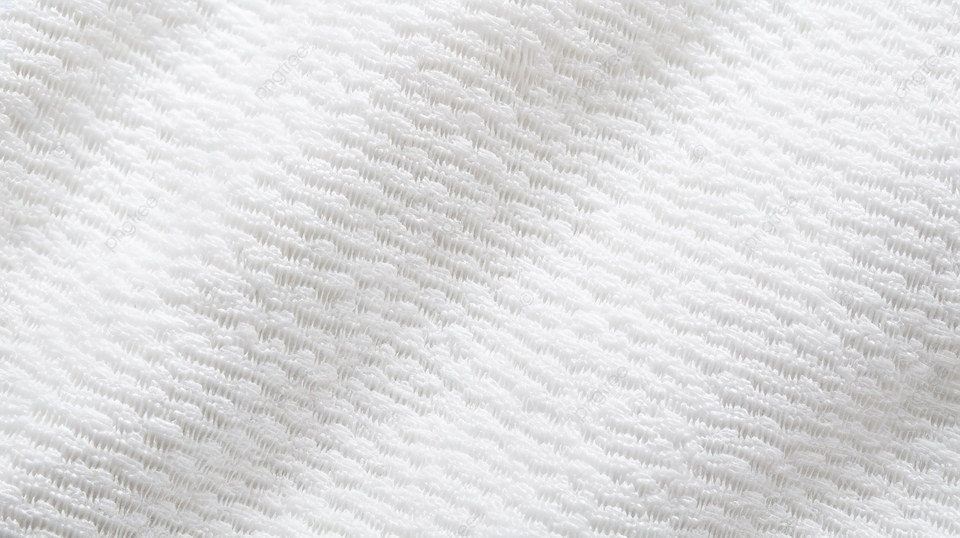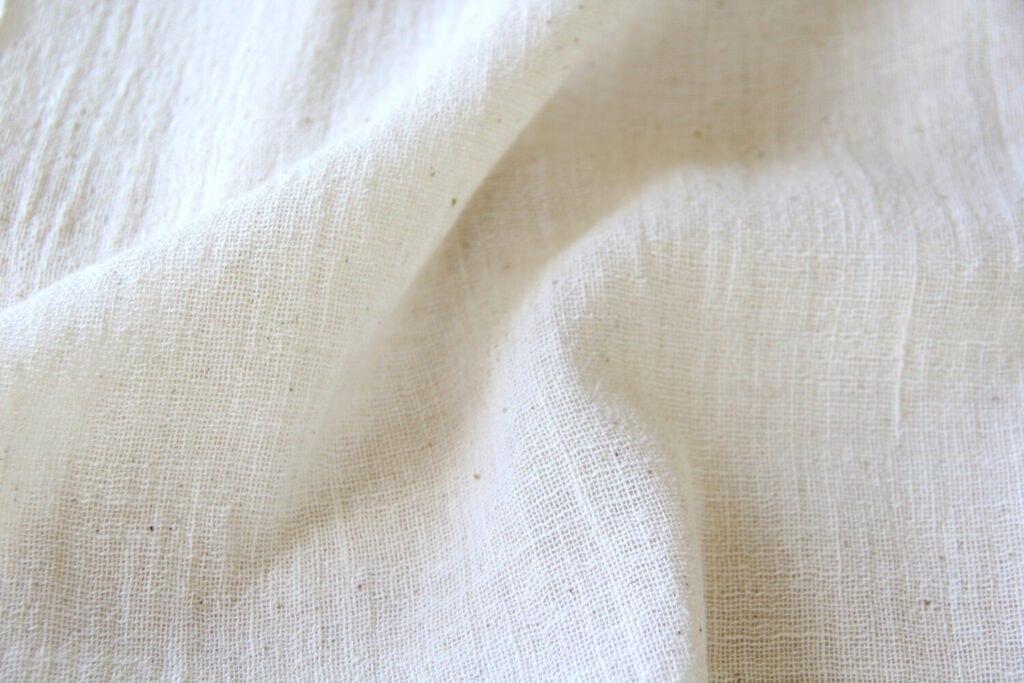Tote bags have become an essential accessory in today’s eco-conscious world. Among the reasons for their popularity, the wide variety of fabrics used to make them is a major contributing factor, each with its own advantages. From the natural softness of cotton to the strength of canvas to the environmental friendliness of jute and the water-resistant qualities of non-woven polypropylene, there is a perfect material to suit every need. For those aiming to promote sustainability, it is recommended that one consider recycled materials or organic cotton. For this reason, in this article, we will describe the features of the best fabrics for custom tote bags and their utilities to make an informed decision on which material is the best option for your needs.
Cotton

Cotton is a natural, soft, lightweight, and biodegradable fabric commonly used for eco-friendly and reusable tote bags. Its versatility allows for variations like durable canvas, sustainably sourced organic cotton, and lightweight muslin, catering to different needs. Benefits include being eco-friendly, washable, and durable, though it may shrink or wrinkle after washing and is less water-resistant.
Key Benefits of Cotton for Tote Bags
- Eco-Friendly: Cotton is biodegradable, making it a sustainable alternative to plastic-based materials. Organic and recycled cotton further enhance its eco-friendly appeal.
- Durable and Washable: Cotton bags can handle repeated use and are machine washable, which is ideal for long-term use. This is especially beneficial for grocery totes or bags exposed to frequent dirt and stains.
- Customizable: Cotton is highly versatile for printing techniques like screen printing, direct-to-garment (DTG), and embroidery. It absorbs dyes well, ensuring vibrant and long-lasting designs.
- Soft and Comfortable: Cotton’s natural texture is gentle to the touch, making it comfortable to carry even with heavier loads.
Canvas

Canvas, a heavier and more durable form of cotton, is a popular choice for custom tote bags due to its thick, long-lasting nature. It’s highly versatile for printing techniques, washable, and offers excellent longevity. However, canvas is slightly heavier and more expensive compared to thinner cotton alternatives, which may affect its practicality for some uses.
Key Benefits of Canvas Tote Bags
- Exceptional Durability: Canvas is a thick, tightly woven fabric that withstands heavy use and wear over time. It can carry heavier items without tearing or stretching, making it perfect for everyday use.
- Eco-Friendliness: Made from cotton, canvas is a natural and biodegradable material. It’s a sustainable alternative to plastic and synthetic materials.
- High Customizable: Canvas provides a smooth and sturdy surface ideal for various printing techniques. The fabric absorbs inks well, ensuring vibrant and long-lasting designs that can showcase branding.
- Versatile: With its natural texture and classic look, canvas is a popular choice for tote bags. It’s versatile enough to suit casual, professional, or eco-friendly styles, making it a favorite for both practical and marketing purposes.
Jute

Jute is a natural, coarse, and sturdy fabric, making it a favorite for rustic or eco-conscious tote bag designs, such as farmers’ market bags. It offers excellent durability, eco-friendliness, and biodegradability, but its rough texture can make it less comfortable to carry compared to softer materials.
Key Benefits of Jute Tote Bags
- Eco-Friendly: Jute is a natural fiber derived from plants, making it a sustainable and biodegradable material. Its production requires fewer resources compared to other materials, making it an excellent choice for environmentally conscious brands.
- Durability and Strength: Jute is highly durable and strong, capable of withstanding heavy loads without tearing. This makes it ideal for tote bags used for groceries and books while maintaining their shape and structure over time.
- Rustic Aesthetic: With its coarse texture and earthy appearance, it just offers a natural, rustic charm that stands out. This makes it a popular choice for artisanal branding, adding an organic touch to tote bags.
- Water Resistance: Jute fibers are naturally resistant to water, making jute tote bags less prone to damage from light moisture or spills. This adds to their practicality for daily use.
Non-Woven Polypropylene

Non-woven polypropylene is a synthetic, fabric-like material that is lightweight and cost-effective, making it a popular choice for promotional and giveaway tote bags. It is water-resistant, easy to print on, and budget-friendly, but it’s less durable and not as eco-friendly as natural fiber options.
Key Benefits of Non-Woven Polypropylene
- Lightweight Yet Durable: This material is lightweight, which makes the tote bags easy to carry, yet strong enough to handle heavy loads. Nonwoven PP is resistant to wear and tear, providing long-lasting usability.
- Breathability: Non-woven polypropylene is breathable, making it ideal for carrying items that need ventilation, such as groceries or fresh produce. This feature helps reduce moisture buildup and keeps content fresh.
- Resistant to Bacteria and Mold: The material’s resistance to bacterial and mold growth enhances hygiene, especially when the bags are used to transport food or damp items.
- Wide Range of Colors: Non-woven PP is available in an array of colors and finishes, allowing brands to achieve diverse aesthetic effects.
Recycled Materials

Recycling materials made from repurposed fabrics or fibers are ideal for eco-conscious tote bags that emphasize sustainability. They are environmentally friendly and often lightweight, making them a great choice for brands focused on reducing waste. However, these materials may lack the durability of their counterparts, depending on the source and processing.
Key Benefits of Tote Bags Made From Recycled Materials
- Environmental Sustainability: Using recycled materials reduces the demand for virgin resources, such as cotton, polyester, or plastics, and helps divert waste from landfills. This promotes a circular economy by giving new life to discarded materials.
- Lower Carbon Footprint: The production of tote bags from recycled materials typically consumes less energy and water compared to manufacturing from raw resources, helping to reduce greenhouse gas emissions.
- Positive Brand Image: Offering tote bags made from recycled materials appeals to eco-conscious consumers and demonstrates a company’s commitment to environmental responsibility. This can boost customer loyalty and differentiate the brand in a competitive market.
- Versatility and Durability: Recycled materials, such as recycled PET (rPET) or post-consumer cotton, retain much of the strength and durability of their original forms. This ensures the bags are long-lasting and suitable for carrying heavy loads while still being eco-friendly.
Organic Cotton

Organic cotton is grown without synthetic pesticides or fertilizers, making it a more sustainable and environmentally friendly choice. It’s popular among eco-conscious brands and consumers for its hypoallergenic properties and alignment with sustainable marketing initiatives, promoting both health and environmental responsibility.
Key Benefits of Tote Bags Made From Organic Cotton
- Eco-Friendly Production: Organic cotton is grown without synthetic pesticides, herbicides, or genetically modified organisms (GMOs), reducing harmful environmental impacts. It also consumes less water in certain growing practices compared to conventional cotton.
- Healthier for Users and Producers: Organic cotton avoids chemical treatments, making the material safer for workers in the supply chain and consumers who use the tote bags. It’s hypoallergenic and gentle, ideal for those with sensitive skin.
- Biodegradability: Unlike synthetic materials, organic cotton is biodegradable, breaking down naturally at the end of its lifecycle. This minimizes its contribution to long-term waste pollution in landfills.
- Durable and High Quality: Organic cotton fibers are typically handpicked, preserving their strength and integrity. This results in a longer-lasting material that can endure frequent use, making it both sustainable and economical over time.
Summary
Choosing the right fabric for your tote bag requires considering your needs, values, and intended use. Whether you prioritize sustainability, durability, or style, you’ll find an ideal material among options like cotton, canvas, jute, non-woven polypropylene, recycled materials, or organic cotton. Each fabric brings unique advantages, such as cotton’s soft feel, canvas’s durability, and the eco-conscious benefits of organic and recycled materials. By understanding these characteristics, you can select the material that best aligns with your practical needs and branding goals.



